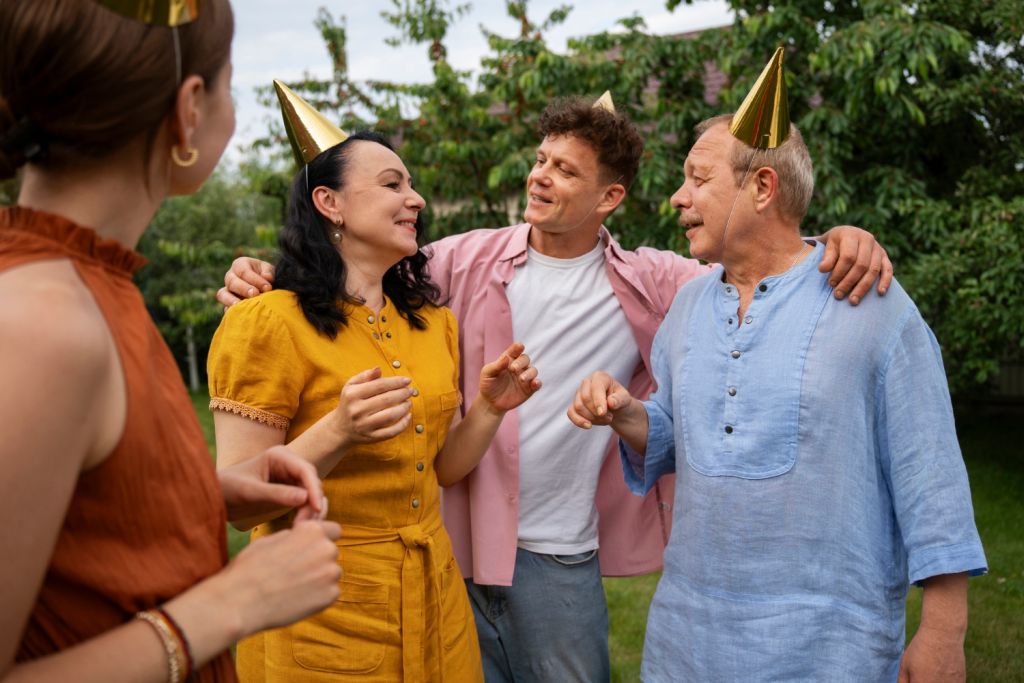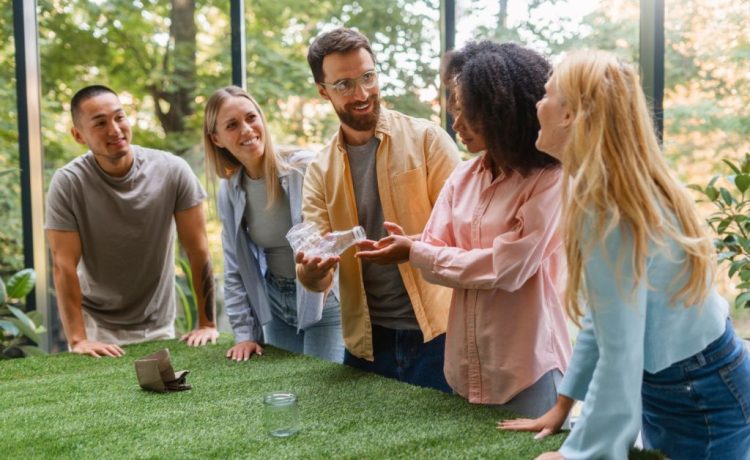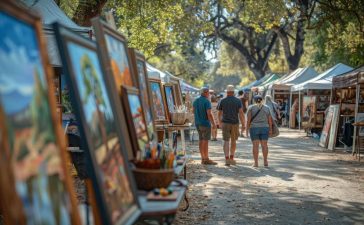Creating a sense of community in today’s fast-paced world can be challenging. Yet, community events have the power to bridge gaps, foster relationships, and build stronger local ties. These gatherings, whether large festivals or small neighborhood meet-ups, play a crucial role in fostering local connections. This blog post will explore how community events contribute to social cohesion, the benefits they bring to residents, and the economic and cultural impacts they have on local areas. Additionally, we will discuss the pivotal roles community leaders and event organizers play, and share some case studies of successful events.
The Social Impact of Community Events
Community events are more than just fun gatherings; they are vital for building social cohesion. When people come together to celebrate, participate, or simply enjoy an event, they forge connections that might not happen otherwise. These events provide a relaxed environment where individuals can meet new people, bond over shared interests, and strengthen existing relationships.
One of the key social impacts of community events is the creation of a sense of belonging. When residents feel part of a community, they are more likely to engage in local activities and contribute to the well-being of their neighborhood. This sense of belonging fosters mutual support and cooperation among community members, which is essential for a thriving local environment.
Furthermore, community events also help break down social barriers. In diverse neighborhoods, these events offer opportunities for people from different backgrounds to interact and learn from one another. This interaction promotes understanding, tolerance, and respect, which are fundamental for a harmonious and inclusive community.
Benefits for Local Residents
Community events offer numerous benefits for local residents, enhancing their overall quality of life. One of the most significant advantages is improved mental well-being. Participating in community events can reduce feelings of isolation and loneliness, as they provide opportunities for social interaction and engagement. These positive social interactions are known to boost mental health and contribute to a happier, more connected community.
Another benefit is the sense of community pride that comes from participating in local events. Residents who take part in organizing or attending these events often feel a stronger connection to their neighborhood. This pride can translate into increased civic engagement, where individuals are more likely to volunteer, support local businesses, and advocate for community improvements.
Lastly, community events offer residents the chance to discover new interests and develop new skills. Whether it’s a cooking class, a gardening workshop, or a local art fair, these events expose residents to new experiences and hobbies. This exposure can lead to personal growth and development, enriching the lives of those who participate.

The Economic and Cultural Impact
Community events also have a significant economic and cultural impact on local areas. Economically, these events can boost local businesses by attracting visitors and increasing foot traffic. Vendors, restaurants, and shops often see a surge in customers during community events, leading to higher sales and revenue. This economic boost can be especially important for small businesses that rely on local support to thrive.
Culturally, community events play a vital role in preserving and celebrating local heritage. Festivals, parades, and cultural exhibitions showcase the unique traditions and customs of a community, fostering a sense of pride and continuity among residents. These events also provide a platform for local artists, musicians, and performers to share their talents with a broader audience, enriching the cultural landscape of the area.
In addition, community events can attract tourists and visitors from outside the local area. This influx of visitors not only boosts the local economy but also raises awareness of the community’s unique offerings. This increased visibility can lead to further investment and development, benefiting the community as a whole.
The Role of Community Leaders and Event Organizers
Community leaders and event organizers play a crucial role in the success of community events. Their responsibilities include planning, coordinating, and executing events that meet the needs and interests of the local population. This often involves securing funding, obtaining permits, and coordinating with various stakeholders, such as local businesses, volunteers, and government agencies.
One of the main challenges faced by community leaders and event organizers is ensuring that events are inclusive and accessible to all residents. This requires careful consideration of factors such as location, timing, and cost, as well as efforts to accommodate individuals with disabilities or other special needs. By creating inclusive events, organizers can ensure that everyone in the community has the opportunity to participate and benefit from these gatherings.
Another challenge is maintaining community engagement and enthusiasm for events. This involves effective marketing and communication strategies to raise awareness and encourage participation. Social media, local newsletters, and word-of-mouth are all valuable tools for spreading the word about upcoming events and keeping the community informed and excited.
Case Studies of Successful Community Events
To illustrate the power of community events, let’s look at a few case studies of successful gatherings that have had a significant impact on local connections and engagement.
1. The Greenfield Annual Street Fair: This annual event in Greenfield, a small town in the Midwest, brings together residents for a day of food, music, and activities. The fair features local vendors, live performances, and interactive games for all ages. Over the years, the Greenfield Street Fair has become a beloved tradition, fostering a strong sense of community pride and cohesion among residents.
2. The Bayview Cultural Festival: Held in a diverse urban neighborhood, the Bayview Cultural Festival celebrates the area’s rich cultural heritage with a variety of performances, workshops, and exhibitions. The event showcases the talents of local artists and performers, while also providing educational opportunities for residents to learn about different cultures. The festival has been instrumental in promoting understanding and respect among the diverse population of Bayview.
3. The Rivertown Volunteer Day: This community event focuses on giving back to the local area through various volunteer projects, such as park cleanups, tree planting, and food drives. Residents come together to work on these projects, building camaraderie and a sense of accomplishment. The Rivertown Volunteer Day has not only improved the local environment but also strengthened the bonds between community members.
Conclusion
Community events are essential for fostering local connections and creating a sense of belonging among residents. These gatherings offer numerous benefits, including improved mental well-being, a sense of community pride, and opportunities for personal growth. Additionally, community events have a positive economic and cultural impact, boosting local businesses and preserving local heritage.
The success of community events relies heavily on the efforts of community leaders and event organizers, who work tirelessly to plan and execute inclusive and engaging gatherings. By participating in and supporting these events, residents can contribute to the overall well-being and vibrancy of their community.
So, why not get involved? Attend an upcoming event, volunteer your time, or share your own experiences with community events. Together, we can create stronger, more connected communities that thrive and grow.














